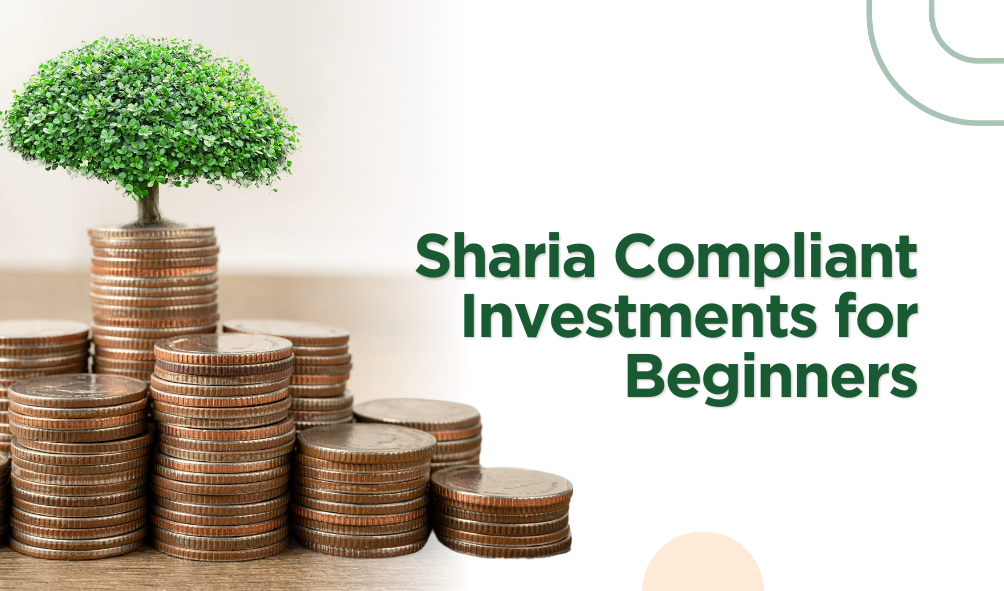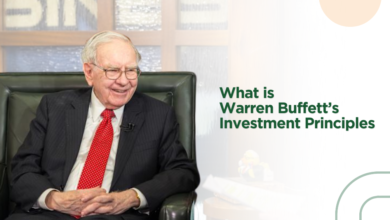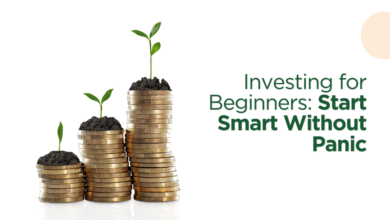Sharia Compliant Investments for Beginners
Learning sharia-compliant investments, which deploying capital in a business to achieve profits, is one way to develop wealth and property. The development of wealth is essential to prepare for financial resilience in the future. Imagine reaching an age where physical and mental capacity to work is reduced. How can we meet our daily needs without wealth that grows independently if not through investment?
However, for some people, investing can seem complicated and confusing, especially for beginners who lack sufficient knowledge and experience. This complexity is heightened when the investment must comply with Islamic principles.
Why Must Muslims Develop Wealth?
There are several verses in the Quran that state the reasons to invest or develop wealth beyond rational considerations. Among the commonly cited verses in the context of Islamic investment is the following:
وَلْيَخْشَ ٱلَّذِينَ لَوْ تَرَكُوا۟ مِنْ خَلْفِهِمْ ذُرِّيَّةً ضِعَٰفًا خَافُوا۟ عَلَيْهِمْ فَلْيَتَّقُوا۟ ٱللَّهَ وَلْيَقُولُوا۟ قَوْلًا سَدِيدًا
“And let those [executors and guardians] fear [injustice] as if they [themselves] had left weak offspring behind and feared for them. So let them fear Allāh and speak words of appropriate justice..” (Qur’an 4:9)
Also Read The Tafsir: Qur’an Surah An-Nisa: 9
This verse advises us to pay attention to the fate of our descendants after we die so as not to leave behind a weak generation, one of which is financially weak. Therefore, it is encouraged to prepare a financially literate and strong generation, One such method is through investment.
Also read: Understanding Wealth and Ownership in Islam
What is Islamic Investments?
In Arabic, the term “investment” is “استثمار” (istithmār). It is derived from the root word ثَمَرَ (thamara), which means “to bear fruit” or “to produce.”
- The root ث-م-ر refers to fruits, yield, or results, symbolizing the idea of growth and increase.
- The prefix استـ (ist-) in Arabic often conveys the meaning of seeking or causing something to happen.
Thus, “استثمار” (istithmār) essentially means “seeking growth” or “causing something to bear fruit,” which aligns perfectly with the concept of investment—using resources to generate returns or produce benefits. This etymology reflects the cultural and linguistic emphasis on the productive and fruitful nature of investments in Arabic.
From an Islamic perspective, investment refers to allocating funds or capital to a specific business activity that does not contradict Sharia principles, both in its object and process.
Key principles of Islamic investment include:
- Prohibition of riba (interest).
- Avoidance of speculation and ambiguity (gharar).
- Prohibition of multiple contracts.
So that funds will only be invested in legal instruments in accordance with sharia criteria, such as property (land or housing) or businesses under partnership agreements (syirkah).
Also read: Sharia Investments for Marriage Preparation
The Basic of Islamic Economics: Principles of Islamic Investments
Islamic economics is based on three key principles:
- Ownership Regulation
- Wealth Utilization
- Wealth Distribution
These foundations provide a comprehensive framework for understanding Islamic investment.
1. Ownership
Ownership in Islam is defined as Allah’s permission to benefit from a resource (M. Husain Abdullah, Dirasat fi Al-Fikr Al-Islam). Ownership is categorized into three types:
- Individual ownership (e.g., houses, cars, money).
- State ownership (e.g., jizyah, kharaj, and ghanimah).
- Public ownership (e.g., natural resources like water, pastures, and minerals).
The Prophet Muhammad (peace be upon him) said:
“Muslims have common share in three (things). grass, water and fire.” (Sunan Abi Dawud: 3477).
Also there’s a hadith about mining. Narrated Shumair:
that Abyad bin Hammal visited the Messenger of Allah (ﷺ) who asked him to set aside a reserve of salt(a mine). So he reserved it for him. As he was turning away, a man in the gathering said: “Do you know what you reserved for him ? You merely reserved stagnant water for him.” He (Shumair) said: “So he left him.” He (Shumair) said: “So he asked him (the Prophet (ﷺ)) about making a private pasture of Arak (a type of tree).” He said: “As long as it is not harmed by the hooves of the camels.” So I (At-Tirmidhi) recited that before Qutaibah and he said: “Yes“. (Jami’ At-Tirmidhi 1380)
This hadith highlights the Islamic principle that natural resources, especially those in abundance like water or salt mines, should remain accessible to the community and not be monopolized by individuals.
For Islamic investment, the focus is on individual ownership, ensuring its development aligns with Sharia principles.
2. Wealth Utilization
Wealth utilization in Islam involves:
- Usage: Fulfilling needs while adhering to halal (permissible) and haram (forbidden) guidelines.
- Development: This includes investments aimed at increasing wealth, always within the boundaries of halal practices.
3. Wealth Distribution
Wealth distribution in Islam occurs in two ways:
- Non-economic distribution: Through zakat, infaq, and sadaqah (charitable giving).
- Economic distribution: Via transactions such as fair pricing in trade or wages in service agreements.
Sectors for Islamic Investment
Islam provides broad opportunities for wealth development within the framework of halal and ethical practices. Potential sectors include:
- Trade: Buying and selling properties.
- Industry: Establishing factories.
- Business partnerships: Acting as a capital provider in ventures.
- Foreign trade: Engaging in lawful international commerce.
Also read: 4 Tips to Realize Financial Resolutions by Investing in Sharia
Starting Islamic Investment for Beginners
Many guides are available on how to begin, manage, and sustain investments, both conventional and Islamic. However, an essential aspect often overlooked is understanding that investment is fundamentally about wealth development.
This means one must first accumulate individual wealth through halal ways such as farming, offering services, or brokerage. Once sufficient wealth is gathered, it should be allocated appropriately, with a portion designated for investment.
By establishing this investment fund, one can embark on a journey toward financial growth.
There is also the most important thing you must have, that is a Coach that understands all islamic law about business, or you may say a teacher.
May this simple guide assist us all in learning and practicing Islamic investment effectively.
Barakallahu Fiikum.
Also read: Market Cap and Its Impact on Investment

References:
- Abdullah, Husain. (1990). Dirasat fi al-Fikr Al-Islamiyat. Amman: Dar Al-Bayariq.
- Al-Nabhani, Taqiyuddin. Al-Nizham Al-Iqtishadi fi Al-Islam. Beirut: Darul Ummah, 2004.
- Tafsir Qur’an Surah An-Nisa: Verse 9
- Investments in Arabic
- Sunan Abi Dawud: 3477
- Jami’ At-Tirmidhi 1380
Let’s Visit, Zeed and join for halal investment with Zeed.





